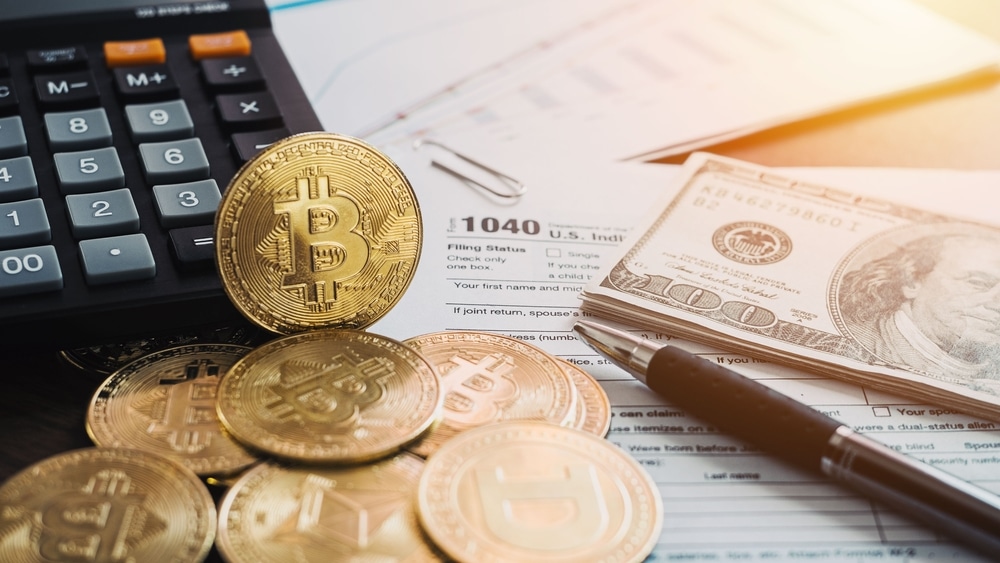The draft proposals by the Internal Revenue Service to change the digital assets tax reporting are attracting criticism from legislators and crypto executives. The draft proposals advance the Department of Treasury’s objective of transparent tax filing.
The House Financial Services Committee (HFSC) chair, Patrick McHenry, laments that the draft proposals portray the intention of Biden’s administration to suppress and kill digital asset adoption. The Republican submitted in the Friday, August 25 statement that the proposal is deficient in clarity, hence the need for the IRS to formulate more precise rules.
McHenry argued that the provisions in the draft proposal mandate the leading cryptocurrency exchanges to disclose customer information to the IRS. He considers the provisions as orchestrating an effort that would ultimately kill the cryptocurrency ecosystem in the country.
McHenry challenged the IRS and the Department of Treasury to partner with Congress in formulating clear rules he labeled as the elusive catalyst to nurture the digital asset ecosystem. He added that the proposals should portray a narrow and tailored outlook on the digital assets ecosystem.
The draft proposals constitute efforts by the Treasury Department and IRS to avert the crypto investing tax cheats. American taxpayers are mandated by the current laws to remit tax on the gains. The process is considered difficult and expensive to procure professional services, hence enticing tax cheats. The process stipulated in Friday’s statement targets easing the process to close the tax gap.
The Treasury Department announcement indicated that the draft proposals constitute the broader effort to bridge the tax gap. The provisions prioritize resolving the tax evasion risks by investors who leverage the anonymity of digital assets investment. As such, the proposals target to harmonize the rules to guarantee fairness when all parties are subjected to a similar framework.
Treasury Department’s Proposals Threatens Existence of Decentralized Exchanges
The draft proposal borrows from bond and stock brokers’ regulation to obligate entities facilitating digital assets buying and selling to track and convey the information to the IRS. The proposed rules also apply to the decentralized exchanges (DEXs). DEXs are unique since they hardly collect customer data from users different from centralized exchanges, including Binance and Coinbase.
The Blockchain Association executive Kristin Smith indicated that the digital assets industry would soon welcome crypto laws in 2023. The executive director lamented that the digital assets industry lacks comprehensive legislation, leaving the operators embroiled in endless lawsuits with the regulators.
Proposals Threatens to Hurt Usage of P2P Protocols
The move to net the DEXs under the draft proposals will likely hurt the decentralized finance (DeFi) segment. Delphi Labs’ counsel, Gabriel Shapiro, indicated that enforcing the proposed rules would severely curtain the usage of peer-to-peer (P2P) protocols. He attributes the detriment of the proposals to requiring the operators of P2P protocols to collect data from users.
The Washington, D.C.-based advocacy group’s chief executive indicated that complying with the reporting requirements would compel DEXs to centralize. Doing so would eliminate the security and transparency benefits attributed to decentralization.
McHenry’s criticism of the proposal by the Treasury Department echoed his previous stance on initiatives undertaken by the Democrats to regulate the digital assets ecosystem. His engagement in the crypto regulation is evident in July’s efforts to lobby support for the stablecoin regulation bill opposed by Democrats. McHenry would likely convey his recommendations to the proposed rules by receiving public comments by the October 30 deadline.
Amend Proposal to Eliminate Existing Roadblock to Crypto Adoption
Smith considers streamlining the proposals essential to ensure it eliminates a significant roadblock hindering involvement in digital assets. He believes that the rules should become the catalyst that boosts compliance with taxation policies.
The current proposals have excluded crypto mining, considering that the scope has previously prompted criticism, particularly when formulating the 2021 infrastructure law.
The IRS invites industry stakeholders to convey objections and suggestions by October 30. It would pave the way for public hearings on November 7-8.
At Tokenhell, we help over 5,000 crypto companies amplify their content reach—and you can join them! For inquiries, reach out to us at info@tokenhell.com. Please remember, cryptocurrencies are highly volatile assets. Always conduct thorough research before making any investment decisions. Some content on this website, including posts under Crypto Cable, Sponsored Articles, and Press Releases, is provided by guest contributors or paid sponsors. The views expressed in these posts do not necessarily represent the opinions of Tokenhell. We are not responsible for the accuracy, quality, or reliability of any third-party content, advertisements, products, or banners featured on this site. For more details, please review our full terms and conditions / disclaimer.



